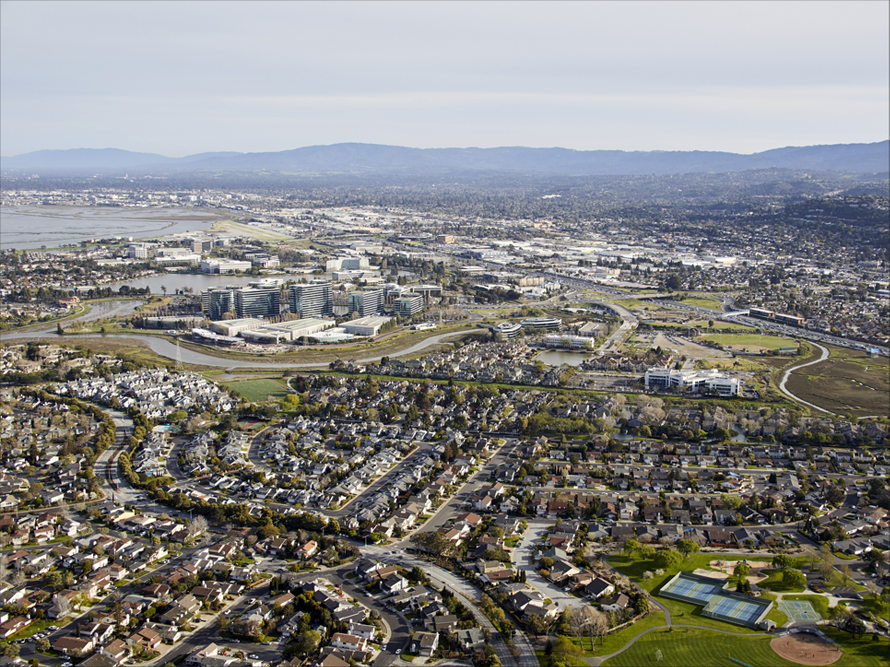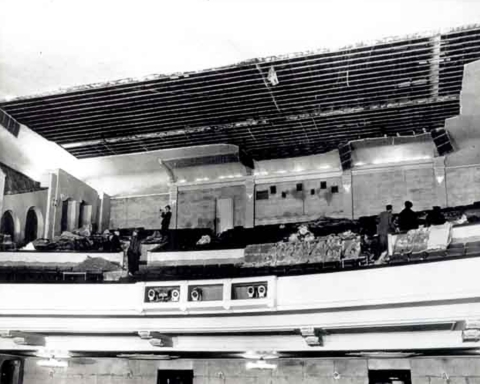Housing, transportation, infrastructure – growth and change – it always seems to come back to these specific topics and those two overriding issues. And so we plunge into a number of local matters that reflect the struggle to embrace change, accommodate change and define what it means to continue to move forward.
PENINSULA NOW AND LATER: It has been a few weeks since former Redwood City Councilmen Jeff Gee and John Seybert kicked off a lobbying group named Peninsula Now at a private event. Enough questions remain that we touched base with Gee again on the organization, what he’s trying to do and why.
“This is not a platform for developers, as much as some people might think it is,” said Gee, and that’s just as well, I suppose. One reason those who consistently oppose growth and change are so much noisier is that they lack any real power or influence, except through the ability to be noisy. On the other hand, developers never seem to have trouble getting their side of the story heard, which is a pretty good definition of having power and influence.
Still, Gee is worried that the public debate is dominated by opposition. “From my experience on the council, people who are unhappy are usually the ones who show up and raise an angry voice,” Gee said, adding that he thinks the debate should not be “one-sided. … We want to create an opportunity for those who like what’s going on. …It’s not just about making sure there is more housing. It’s about making sure the consensus is not about the status quo. The status quo is not acceptable.”
The critical issues facing the region – housing, transportation, infrastructure – have to be tackled now and in earnest by a broad coalition of decision-makers and policy-influencers, he said. “If they don’t start now, they don’t have a hell of a chance,” Gee said.
He said the organization is intended as a “convener.” Peninsula Now will conduct candidate forums, for example, Gee said, including the race for the 13th Senate District seat. And the group will weigh in politically on ballot measures, candidates and issues that come before local councils. As an example, Gee said a local city council is on the verge of ignoring its own zoning regulations and city ordinances and downzoning a parcel, quite likely in violation of state law. On a regional level, Gee wants Peninsula Now to be a vigorous advocate for San Mateo County’s interests, citing the work toward a regional transit measure. “What’s really in it for San Mateo County? Are we going to get our fair share?” Gee said.
Some of this is already being done by Rosanne Foust through her leadership of the San Mateo County Economic Development Association, but the county has long been overlooked as a regional player so it could be argued another voice is useful. In trying to develop a regional presence, redundancy probably doesn’t hurt.
Peninsula Now is established as an independent expenditure committee, which means it can get involved in support of candidates and on ballot measures. It also means Peninsula Now won’t have to disclose who donates to the group, although Gee, again, was a little vague about how that would work. If money is raised for a candidates’ forum, “there’d be no need to disclose who’s funding our operation,” he said.
How all this manifests itself is still pretty vague and it’s hard to tell if Gee doesn’t know yet or simply isn’t saying.
“It’s so early in the process. We want to grow and learn,” he said.
One thing is certain, he said. Peninsula Now is not a vehicle for Gee’s return to the Redwood City Council. With the advent of districts, Gee’s neighborhood, Redwood Shores, has been carved out as a distinct entity and would seem ripe for him. The council currently has no one from the Shores and won’t until the 2020 election.
“I haven’t made any decisions (about running) and that has nothing to do with Peninsula Now. … I haven’t ruled it out. I haven’t ruled it in either,” Gee said.
SAN BRU-NOPE: In referring to a city that was on the verge of a troubling housing decision, perhaps Gee was anticipating the defeat in San Bruno this week of a 425-unit housing project by the narrowest and weirdest of circumstances – a 2-1 vote with two council members recusing themselves because they owned property nearby. By any measure it’s a lost opportunity.
More than any other city on the Peninsula, San Bruno has been hungry to reinvent a largely moribund downtown, and this project would have been a huge step in that long-desired direction. And it’s absolutely the wrong message to send to those who continue to seek ways to relieve local cities of land-use authority that blocks housing development near transit.
GETTING REAL ON EL CAMINO: In another occupation (or preoccupation), it was a particular pleasure to be part of the initial efforts to form the Grand Boulevard Initiative, a regional effort to transform El Camino Real into a world class boulevard of housing, businesses, recreation and retail. One of the fundamental planning concepts described at an early Grand Boulevard brainstorming session was the creation of nodes – centralized locations of commercial business, ranging from regional centers, like the Hillsdale Shopping Center, to mid-level community centers, like many of the Peninsula’s downtowns, to neighborhood service centers, like 25th Avenue in San Mateo.
Between these nodes would be high-density, high-rise housing – apartments and condos, mostly, designed to fit into the character of an adjacent residential neighborhood. There would be greenswards and bike paths and transit would be high-frequency and take people readily and conveniently to the nodes.
One key element of this concept is development that doesn’t push right up to the curb. But if you tool up and down El Camino, that’s exactly what you’ll see – housing projects that go right up to the edge of the sidewalk. This is happening because local cities are willing to go out rather than up.
El Camino housing development can be the answer to the Peninsula’s housing quandary, but it is going to require a willingness to build up and preserve the ground level for human use and enjoyment.
IN CONTROL: Assemblyman Kevin Mullin and I were fortunate recently to interview State Controller Betty Yee on our TV show, The Game. Among the interesting tidbits from the state’s highest-ranking female officeholder: 70 percent of the state’s General Fund comes from personal income taxes, which makes the state budget extremely vulnerable to economic downturn. She said the tax structure is used to fund public services, but it’s fuller purpose should be to support economic development and growth. She said reform of Proposition 13 should be among the tax reforms up for discussion. You can see the interview here: https://www.pentv.tv/videos/community/the-game/
Contact Mark Simon at mark.simon24@yahoo.com.
*The opinions expressed in this column are the author’s own and do not necessarily reflect the views of Climate Online.
CORRECTION: The original column incorrectly stated that 70 percent of California’s General Fund revenues come from sales tax, when in fact 70 percent of General Fund revenues come from personal income tax. The story has been corrected.
Above photo by Getty Images: Aerial Photography view south-east of Boothbay Park, Hillsdale, San Mateo with a view of Oracle in Redwood City, Marine View Park and Belmont.






